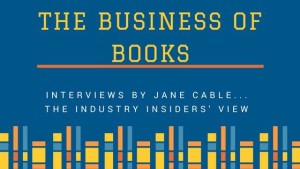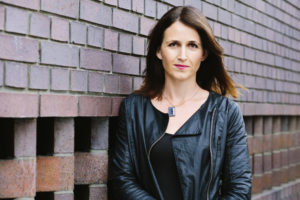‘The Doll Factory’, by Elizabeth Macneal, is published by Pan Macmillan.
I’ve never really considered myself the jealous type. And yet, yesterday – having finished the altogether best book I have read in possibly years – I found myself to be unequivocally, admittedly just that. Jealous. But, also awed, inspired and (isn’t it always so with a favourite book?) almost satisfied.
Because, well, this. This is the kind of book I’d want to write. Because it’s exactly the book I wanted to read.
We follow Iris: twin, shop girl, would-be artist. Dreaming of escape from the drudgery of working-class respectability she feels imprisoned in. Enter Louis, a spirited young painter who could offer just that. But is that all she has to contend with? Silas, a taxidermist with an obsession, has developed other ideas. It is a tale of possession, power and intrigue, with just the right measure of romantic relief.
Set in the possibilities of 1850, smack bang in the time of the Great Exhibition, The Doll Factory captures all of the aspects of Victorian London that we are most familiar with. The poverty, the degradation, the prostitution. Charity, ingenuity, opportunity. The constant framework of class. And art. Lots of art. The nothingness and the excess.
Aside from personal penchant – as a long-time fan of neo-Victorian literature, this romantic thriller was bound to appeal to me – Elizabeth Macneal’s debut boasts all the ingredients of a stunning success. Compelling characterisation, clever plot lines, and the seamless blending of historical accuracy with imaginary detail. Macneal’s world comes vividly alive and the thrill is deliciously real.
And a success it is proving to be. Macneal’s novel won the 2018 Caledonia Novel Award, is a Sunday Times top ten bestseller, and the TV rights have already been sold. And it’s not even out in paperback yet.
But more than that. There is a very modern edge to this story. At its heart, it is a story of womanhood, it is a story of breaking bonds and forging new ones, and it is a story of escape. And of course, the universal themes; life, and death.
And it is perfectly on point for the post ‘Me Too’ consciousness that we are living in. One particularly poignant passage conveys the male power that Iris feels threatened by, the paradoxical standard that women are held to; one that women are pushing against even now, two centuries later:
‘… all her life she has been careful not to encourage men, but not to slight them either… an arm around her waist is nothing more than friendly, a whisper in her ear and a forced kiss on the cheek is flattering, something for which she should be grateful. She should appreciate the attentions of men more, but she should resist them too, subtly, in a way both to encourage and discourage, so as not lead to doubts of her purity and goodness but not to make the men feel snubbed.’
Macneal’s Doll Factory. It is romantic, it is considered, and it is thrilling. I’d go as far as to employ that feminist buzzword, ‘empowering’.
Yes. Must read.
Reviewed by Nadia Tariq


